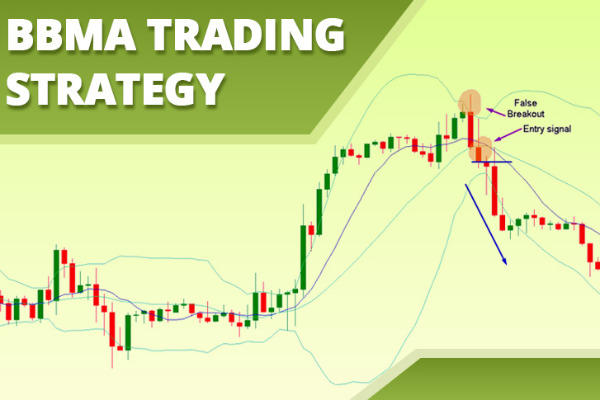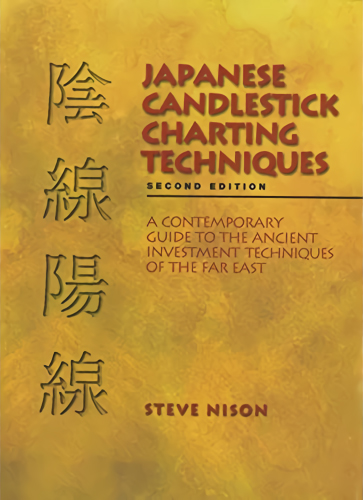Having a trading plan is important for your trade, but it's even more important to stick to the the plan. Why is that?

As a trader, success means being able to consistently profitable over the long term. But in reality, not all traders can maintain such success. Many even end up losing a lot of money they have invested. One of the most destructive habits a trader can have is bending the rules of their trading plans.
If we look at every successful trading story, there must be discipline and hard work. Trading is no gambling, so every trader needs to learn and develop a proper trading plan.
But even more importantly, traders must be consistent with their plans. There are 4 benefits to get if the trading plan is followed regularly. Let's break them down.
1. It Can Eliminate Emotional Factors
Every trader should learn to control their emotions and stay calm. This means making decisions based on logic and reason rather than letting emotions cloud your judgment. It takes practice to master this skill, but having a trading plan can help.
A trading plan is a roadmap for your trading journey. It should include your trading goals, risk tolerance, and entry and exit strategies. Having a plan will help you stay focused and disciplined, even when the market is volatile.
Sticking to your trading plan is essential, even if you are losing money. This is because the market is constantly changing, and what works in one situation may not work in another.
However, if you stick to your plan and learn from your mistakes, you will not get carried away with the market dynamics. You will know when to enter, exit, and when to better step aside and let the market flows.
2. It Can Accelerate Your Learning
Following your plan is also essential so that you can improve it. As we have briefly mentioned, market condition changes constantly, and financial market development is fast. Therefore, as you continue to trade in the market, you are (consciously or unconsciously) learning something new. And whenever that happens, you can always use the knowledge to improve your trading strategy for better outcomes. Many traders don't realize they can accelerate their learning if they stick to the plan.
To be able to do that, you must change your perspective. Try to focus on following your trading plan regardless of the outcome. Only then can you learn about yourself and how your project interacts with the market.
If you make an undisciplined trade, you should consider it a failure even if you profit from it. In contrast, every trade done according to plan should be considered successful even if it makes you lose money. This is because every good trading plan accounts for losing.
Continue using this point of view by following your plan, irrespective of the outcome. You will be more critical and ask questions such as:
"Will I be satisfied if I reduced the reward for a higher potential outcome?" or "Is this type of trade suitable for my risk limit?"
Simultaneously, you'll ignore questions such as:
"Will the market moves higher or lower?" or "What's the market reaction to Fed announcement?"
3. You Can Detach Yourself from the Market
Another helpful lesson from sticking to the plan is that you can detach yourself from the market. Instead of relentlessly pursuing opportunities in every chance, you would only prepare at the times you plan your trades.
It's worth noting that you have no control over the market. The more you stress about it, the more emotional you can get. Not being able to detach yourself from the market can result in disadvantages.
Instead of spending your energy trying to predict the unpredictable, detaching yourself from the market and using your focus to make rational trading decisions would be wiser.
4. You Can Avoid Rationalizing Trades
Some traders like rationalizing their trades, making new decisions on the spot, and abandoning their trading plans. Unfortunately, when we jump into the trade a little late or ahead of time, all the variables we have carefully mapped out in our trading plan will get mixed up and skewed. New risks emerge as the situation inflates, and you have not prepared yourself. So there's a significant risk that you would have to face now.
If you do stick to your trading plan, you will be able to avoid rationalizing your trades. You won't be tempted to make small yet impactful actions like entering the market too early or late just because. Relying on your instincts will only cut your trading journey short. Don't let emotions control you; don't act merely based on fear of missing out (FOMO).
A well-prepared trading plan is the best way to beat such rationalization. If you put yourself in a position where you know all the possible moves beforehand, you will be less likely to change your mind and switch to quick, impulsive decisions during the trade.
Why is it Hard to Stick to the Plan?
We know sticking to the plan is highly important, but some may find it easier said than done. Many traders like to act spontaneously, even if that means abandoning the initial plan they're supposed to follow. By doing so, they're exposing their trades to unnecessary risks and threatening their entire portfolios. The following are the common reasons why most traders have trouble sticking to their plans:
Emotion and Fear
Traders often have trouble controlling their emotions and fail to follow their plans because they panic. As a result, they can lose their grasp of reality and make impulsive decisions that might hurt their trades. Typically, rookie traders are not used to losing money and expect their trades always to win. With such high expectations, it's only natural to feel anxious and panic when things don't go as planned.
Lack of Confidence
It's also possible that traders often fail to follow their plans because they're not confident. They may think that the plan is not effective enough or that it will not work out. As a result, they end up making choices based on simple intuition with no logical basis.
Remember that trading plan is supposed to give you a long-term profit. You must believe your plan and stick to it to make it work. We recommend keeping a trading journal where you can write down every trade and its outcome. Use this to keep track of your performance and examine your plan closely.
Winning or Losing Consecutively
Winning or losing a series of trades can also make you fail to follow your trading plan. For example, if you run into a long series of losing trades, you lose confidence and trust in the plan. In contrast, winning a long series of trades can make you feel overconfident to open trades that don't conform to the original plan.
Conflict with Personal Life
Sometimes, it's also possible that traders can't consistently follow their trading plans simply because of their matters. If this is the case, you should review the plan again, adjust it to match your daily activity, and help you reach your goals. After all, the trading plan is made by you and exclusive to you and your goals. So make sure that the plan applies to you.
Conclusion
Every trader should know that having a trading plan and holding on to it is one of the most important keys to success. Staying consistent may not always be easy, but building a long-term profit is necessary. The key is to be patient and focus on the plan instead of paying more attention to the uncontrollable market movements.
If you win a trade by following your plan, it is a justified win and well-deserved. But if you win by only following your instincts and abandoning your plan, the win is unjustified. It also means that the victory is most likely to be driven by luck, which is not reliable; you might as well throw darts or flip a coin to help you make trading decisions. In the end, consistency is the key.

 Dedicated FREE FOREX VPS
Dedicated FREE FOREX VPS Free FOREX Virtual Private Server
Free FOREX Virtual Private Server MT4 Demo Contest, Get $500
MT4 Demo Contest, Get $500 Sign Up for an Account, Claim 60% Deposit Bonus
Sign Up for an Account, Claim 60% Deposit Bonus Free MT4/MT5 VPS 2024
Free MT4/MT5 VPS 2024 Send E-mail and Get Free Merchandise
Send E-mail and Get Free Merchandise $1K Refer a Friend Bonus for Pepperstone Pro clients
$1K Refer a Friend Bonus for Pepperstone Pro clients Maximize Your Earnings with 100% Deposit bonus
Maximize Your Earnings with 100% Deposit bonus Trade to Win, $5,000 Monthly Demo Contest
Trade to Win, $5,000 Monthly Demo Contest Claim 30% + 15% Deposit Bonus from LiteFinance
Claim 30% + 15% Deposit Bonus from LiteFinance













2 Comments
Nanda
Nov 24 2023
The article highlights that traders frequently struggle with emotional control, leading to deviations from their plans and impulsive decision-making, often driven by panic. This emotional turmoil can result in a loss of perspective, adversely affecting their trades. Personally, I concur with this observation, recognizing that impulsive decisions can significantly alter outcomes, typically concluding on a negative note. This phenomenon isn't exclusive to trading but extends to real-life situations as well. In the context of trading, are there any recommendations for managing emotions? Additionally, can a demo account simulate the emotional aspects of trading?
Geraldo
Nov 29 2023
Describing how to manage our emotions can be challenging. Successfully navigating the emotional hurdles of trading involves employing various strategies. Creating a well-defined trading plan and sticking to it provides a framework, reducing impulsive decisions influenced by panic. Realistic goal-setting is integral to maintaining focus and steering clear of emotional reactions tied to unattainable expectations.
The implementation of effective risk management measures, such as setting stop-loss orders, serves to minimize potential losses and ease emotional tension during trades. Staying informed about market developments facilitates well-informed decision-making, lessening the impact of emotional reactions. Although a demo account may not perfectly replicate the emotional nuances of live trading, it proves valuable for practicing strategies and building confidence. Taking breaks in stressful market conditions and learning from past mistakes further contribute to emotional resilience. Recognizing that emotions are inherent in trading and adopting a disciplined approach, coupled with continuous learning, enhances overall emotional control for more successful trading outcomes.